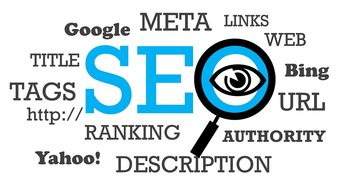Web optimization, often referred to as website optimization or simply optimizing the web, is an intricate process that involves improving a website's performance, User experience, and visibility in search engines. At its core, web optimization aims to make websites faster, more accessible, easier to use, and more appealing to both users and search engine algorithms.
There are several key components of web optimization, each focusing on different aspects of a website's functionality and user interaction. These can be broadly categorized into two main areas: on-page optimization and off-page optimization.
On-Page Optimization:
On-page optimization focuses on elements that are directly within the control of the website owner. This includes:
1、Content Optimization: Delivering high-quality, relevant content is crucial for engaging users and signaling relevancy to search engines. This includes optimizing text, images, videos, and other multimedia assets for both user engagement and keyWord relevance.

2、Technical SEO: This encompasses website structure, clean and optimized code, site speed, mobile responsiveness, and ensuring that the website is easily crawlable and indexable by search engines.
3、User Interface (UI) and User Experience (UX): A well-designed UI and smooth UX play significant roles in keeping visitors on your site. This includes intuitive navigation, visual appeal, ease of use, and ensuring that the website is accessible to all users.
4、Meta Tags and Structured Data: Optimizing title tags, meta descriptions, header tags, alt text for images, and using structured data helps search engines understand the content of the page better and can improve how your pages appear in search results.
Off-Page Optimization:
Off-page optimization pertains to actions taken outside of your website that can impact its ranking and performance. Key aspects include:
1、Link Building: Acquiring high-quality backlinks from authoritative websites demonstrates trust and authority in the eyes of search engines, which can positively affect your website's ranking.
2、Social Media Engagement: While social media links don't directly contribute to SEO rankings, they can drive traffic and increase brand exposure, leading to more opportunities for link building and user engagement.
3、Local SEO: For businesses operating in a physical location, local SEO involves optimizing your website for local search results. This includes Google My Business optimization, local keyword targeting, and managing online reviews and reputation.
4、Reputation Management: Managing your online reputation through reviews, testimonials, and active participation in industry forums and conversations can enhance your brand's credibility and attract more quality traffic.
Web optimization is an ongoing process rather than a one-time task. With constant changes in technology, user behavior, and search engine algorithms, websites need continual monitoring and adjustments to maintain and improve their performance.
Investing in web optimization can lead to numerous benefits such as improved search engine rankings, increased traffic, higher Conversion Rates, and an enhanced user experience. It's about creating a website that not only pleases the algorithms but also delivers value to human visitors, resulting in a strong, sustainable online presence.
评论列表 (0条)